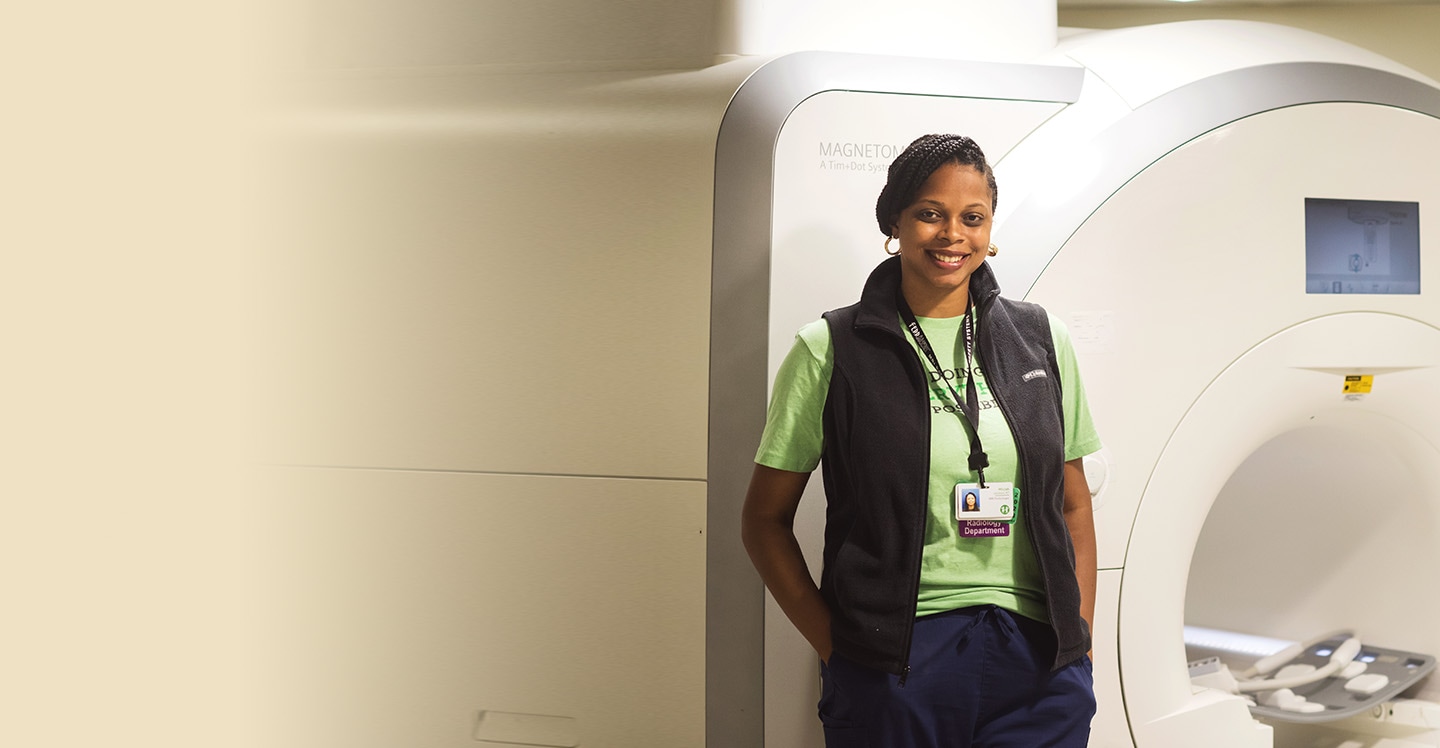
Preparing for Your Child’s Radiology Procedure
Preparing Your Child for a Radiology Procedure
Studies show that children and parents cope better with medical procedures, including radiology procedures, when they are prepared ahead of time.
What should I bring to my child’s radiology appointment?
Bring your child’s medications to his radiology appointment. You will be asked to provide a list of your child’s medicines and information regarding his injury or illness before the procedure.
If possible, make arrangements in advance for the care of siblings on the day of the procedure so you can focus on caring for your child who is having the radiology test.
How can I prepare my child for his radiology procedure?
Here are helpful tips by age that you can use to prepare your child for his upcoming radiology test.
Infants: Although you cannot explain the test to your baby, you can help your baby feel more secure during the procedure if you:
- Bring a special blanket, toy or pacifier.
- Comfort your child with your presence and voice.
- Are prepared to feed your baby after the test is done.
Toddlers and preschool-age children: Young children can become anxious about having a test done, so the best time to talk with your child is right before the appointment.
- On the day of the test, tell your child that he will have some “pictures” taken so your child’s doctor can help him feel better.
- Use simple words and be honest with your child.
- If a part of the test might hurt, talk with your child about it and let your child know it is OK to cry.
- Let your child know that you will stay with him as much as possible during the test.
- When you come to the hospital, bring a favorite book, toy or blanket. You may also bring a snack for after the test.
School-age children: School-age children may scare themselves by imagining something much worse than the actual radiology test.
- One or two days before the test, tell your child that he is going to have some “pictures” taken of his body.
- Use simple words. Be honest with your child, and explain exactly what will happen.
- If it is going to hurt (a needle stick to start the IV), talk to your child about it and let your child know it is OK to cry.
- Let your child know you will stay with him as much as possible during the test.
- When you come to the hospital, bring a favorite DVD, book, toy or game. You may also bring a snack for after the test.
Teenagers: Teenagers understand information about their illnesses and the imaging procedure but may be reluctant to ask questions about things they don’t understand. Encourage your teen to participate in asking the doctors and technologists questions, and include him in discussions about his care.
- Reassure teens that their privacy will be respected and modesty will be protected.
- Bring a journal, book, music or game to help your teen feel calmer while waiting.
- Give him time to ask the radiology team any questions he may have about the test. Involve him in planning and decision-making if possible.
- Let him tell you what he thinks will happen and how he feels.
Who can I call if I have questions?
- Arthur M. Blank Hospital: 404-785-6078
- Hughes Spalding Hospital: 404-785-9988
- Scottish Rite Hospital: 404-785-2787
- Children’s at Town Center: 404-785-XRAY (9729)
- Children’s at Webb Bridge: 404-785-XRAY (9729)
Contact Us 404-785-KIDS (5437)